- Uber planned to partner with United Nations Women to create one million jobs for women as Uber drivers. UN Women has since backed out of the partnership due to concerns over safety and salaries.
Europe
The European Court of Justice (ECJ) has decided that the Safe Harbour Agreement "cannot guarantee adequate protection of EU citizen data at the moment." However, the ECJ explained "Safe Harbor is a politically and economically necessary framework that is still under negotiation and is best left in the hands of the Commission to work toward a better protection of EU citizen rights." The upshot of Europe vs. Facebook (the reason for the ECJ hearing) is that the existence of the USA's National Security Agency (NSA) spying programme PRISM means that Facebook cannot self-certify itself as meeting EU privacy regulations, a requirement of the Safe Harbour Agreement. Yet, Facebook can and will continue to store EU citizens' data, and if citizens don't like the lack of "adequate protection," they will need to get off Facebook.
In Europe v. Facebook, the European Court of Justice admitted that the Safe Harbour Agreement ”cannot guarantee adequate protection of EU citizen data at the moment." If Europeans want adequate protection," they should get off Facebook.
Last Thursday, the UK Prime Minister and opposition leader faced grueling interviews in which they both defended their past performance and their plans for the UK's future. With general elections scheduled for 7 May, British parties are spending a lot of time and money on social media, and Thursday was no exception. #BattleforNumber10 trended as a global hashtag and several social media analysis companies examined the data and announced the UK opposition leader the current favourite online, though not by much.
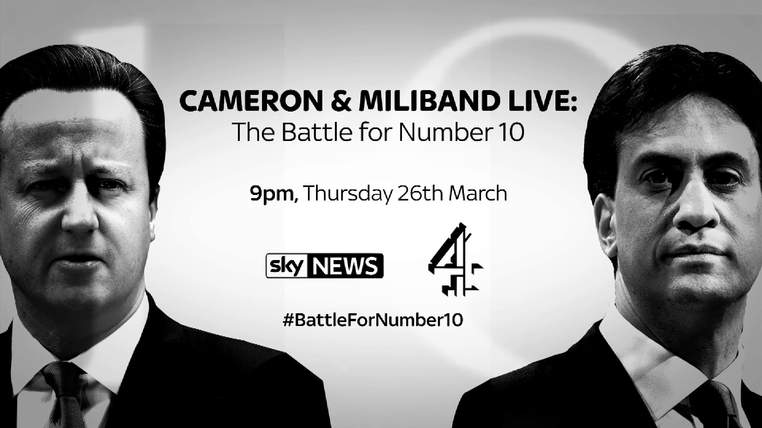
- Thursday the UK Prime Minister and opposition leader faced grueling interviews in which they both defended their past performance and plans for the UK's future. Discussions online trended under several hashtags including #BattleforNumber10.
The UK Government initiated a #DigitalFriends campaign this past week to encourage Civil Servants to share their digital skills with friends and colleagues. The goal of the campaign is to train the 21% of the UK population that lacks the basic skills necessary to benefit from the Internet.
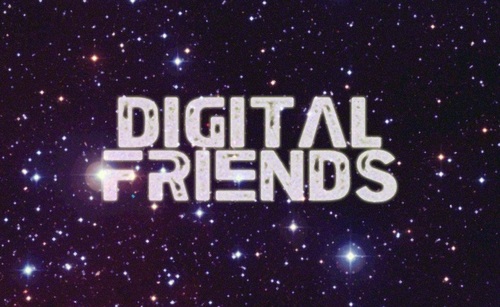
- The UK Government initiated a #DigitalFriends campaign to train the 21% of the UK population that lacks the basic skills necessary to benefit from the Internet.
- "70% of the 1,229 respondents would prefer to use a digital channel for Government services;
- Although there are some good digital services already available, Government must work to provide simpler access to information and services online;
- 88% of respondents want to be in control of their relationship with Government – something digital services can assist with;
- The digital strategy needs to focus on people and meeting customer needs not just technology."

- The Czech Republic hosted 500 US soldiers and about 120 US Stryker armored combat vehicles this past weekend. Anti-NATO organisations on social media organised protests against the visit while pro-NATO groups held support rallies.

- Government and opposition leaders are accusing each other of coups and corruption as leaked audio and video content exposing backroom conversations and illegal deals spread across Macedonian social media.

- Aslı Tunç tries to explain how Turkish citizens are losing ground in the social media censorship (and self-censorship) battle.
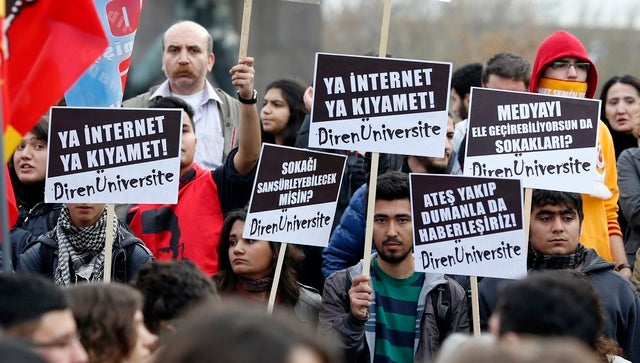
- Turkish Parliament considers criminalizing social media users sharing ‘illegal content.’

- The Turkish Armed Forces (TSK) is planning to open official accounts on social media networks such as Facebook, Twitter and YouTube.
Middle East
Arabs and United Nations Women are celebrating Mother's Day with a unique social media campaign: #MyMothersNameIs. In the Arab world, saying your mother's name used to be taboo - it would open you up to insults. This year, UN Women and Arabs are challenging other Arabs, particularly men, to replace their social media avatars with the names of their mothers.Farkhunda, a 27-year-old Afghan woman and religious scholar, was falsely accused of burning a Quran and then was savagely beaten, burned, and her body dumped in a river by a mob. The attack was caught on cell phones and images were widely distributed on social media contributing to a protest in the capital calling for Afghan authorities to do more to for women and to arrest those responsible for Farkhunda's murder. In the protests, activists wore printed images of Farkhunda's bloody face. The authorities have used images and videos collected on Facebook as evidence against Farkhunda's murderers and to suspend several policemen who witnessed the mob and did nothing. They've also sponsored a Facebook post requesting anyone with additional evidence collected via their mobiles turn this over to the police.

- An Afghan woman falsely accused of burning a Quran was savagely beaten, burned, and her body dumped in a river by a mob. In follow-up protests this week, activists wore printed images of the victim's bloody face.
Twitter announced plans at the 18 March social media event in the UAE that it will soon open an office in Dubai.
Not a moment too soon. The UAE's Security Media Department at the General Secretariat of the Office of Deputy Prime Minister and Minister of Interior, represented by the Social Media Centre, have launched a public engagement social media campaign around the hashtag #insta_meylas. The goal of the campaign is to collect citizen feed back on the UAE and its public services and to share the Emirati lifestyle online.
According to a recent report by the Washington Institute for Near East Policy, Facebook was the main tool used by Iranian ISIS proxies. In the chapter "Recruitment 2.0: Enlisting Fighers Online," the Internet and phone hotlines were helpful in messaging and in recruiting fighters. Relevant Facebook profiles for fighting groups include combat engagements, announcements of "martyrdom," photos of fighters, etc. "Facebook pages, profiles, and blogs featured the symbol of Lebanese Hezbollah combined with the dome of Sayyeda Zainab and the message “Zainab, we are all your Abbas.' "

- An Iranian journalist reportedly successful at using social media to reach out to young voters in Iran is seeking political asylum in Switzerland.
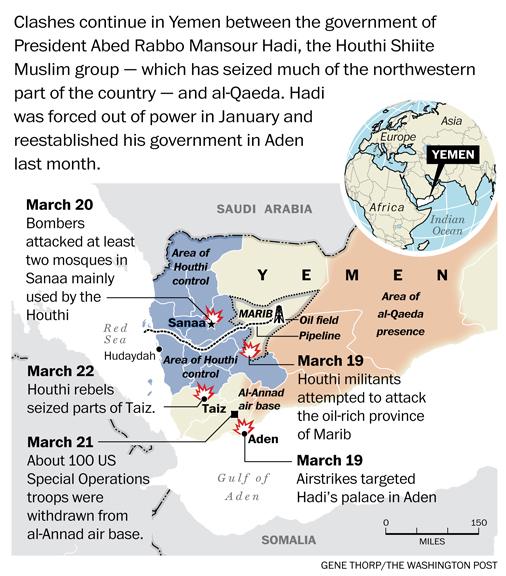
- Saudi Arabian social media is currently congratulating the Saudi King and his Government for Saudi military action in Yemen.
Africa
First off, Nigerians went to the polls for a much-waited Presidential election. Coverage online via #NigeriaDecides. Voting unexpectedly extended from Saturday into Sunday as a result of technical issues - the biometric cards brought in to stop voting fraud appear to have malfunctioned in some areas of the country.
You want to hear a funny joke? "Somalia condemns Sweden for their criticism of devt of human rights in Saudi Arabia". pic.twitter.com/3zmSuDKGsl
— Abdirachid Fidow (@AbdirachidFidow) March 24, 2015
It's estimated that one in 4 Somalis accessed the Internet every week in 2013
and the trend is growing, particularly on Facebook, Instagram, and
Twitter. The Somali President, Prime Minister, and Foreign Minister all
have active Twitter accounts. Find out more about Somalis on Facebook here.Zimbabwean leaders have been accused of working with Iran to learn how to control social media, seen as a destabilizing force in a country where traditional media is carefully overseen by the government. “The government is looking to Iran, among other countries, to help counter the effects of social media before the next elections. They have agreed that something must be done because social media has the potential of revealing their machinations and whipping up emotion among citizens,” an unnamed source told The Zimbabwean. The former Zimbabwean information deputy minister Supa Mandiwanzira in a visit with the Iranian Ambassador made the following remarks, reportedly captured on YouTube and later denied by the minister: “ICTs have been used as a tool to attack people’s convictions on themselves (sic). We want to learn and know how Iran has been able to keep the country together despite sustained attacks through social media.”

- Zimbabwean leaders have been accused of working with Iran to learn how to control social media. Former ICT Minister Supa Mandiwanzira is allegedly negotiating the collaboration.

- Uganda hosted a one-day social media workshop for 100 government spokespersons last Tuesday.
Asia
The Indian Supreme Court has struck down the much debated Section 66 A of the IT Act. Several individuals, including at least one student, have been arrested under Section 66 as a result of "objectionable" social media posts. Even All India Bakchod's 'Roast' of Bollywood stars Ranveer Singh and Arjun Kapoor, was pulled from YouTube because the current Indian Administration decided the content was "vulgar" and "objectionable" under Section 66. The Indian Supreme Court called the Act "unconstitutional" and claimed the Act infringed on the public's right to freedom of speech and right to information" and that Section 66 was too "vague." "[M]ere assurances from the government that the act won't be misused [are not enough]...governments can come and go, but we can't merely act on the government's assurance of not misusing it," the Supreme Court explained.
- The Indian Supreme Court has struck down the much debated Section 66 A of the IT Act.
While many Indians rejoiced over the end of Section 66A, the
Communications and IT Minister Ravi Shankar Prasad noted, "We welcome
this decision [to void Section 66] by the Supreme Court. The government
is committed to free speech. India is a democratic country and free flow
of ideas should be respected. We do not seek to curtail any right..."
however, the Minister advocated "sef-restraint" and "self-regulation" in
Indian social media, saying "I am a supporter of self-regulation and
would like to say it is important to have self-regulation." 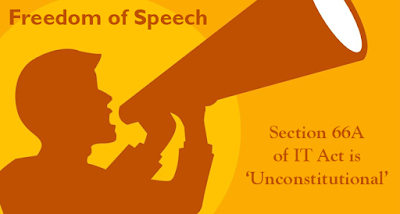

The Securities
and Exchange Board of India (SEBI) announced plans to streamline
regulations and use social media to better educate investors. These policy initiatives were proposed and approved along with SEBI's budget for 2015-16.

- The Securities and Exchange Board of India (SEBI) announced plans to streamline regulations and use social media to better educate investors.
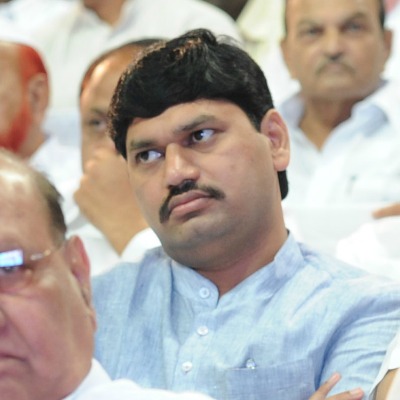
- Indian opposition is angry at the current Government Administration for bypassing traditional government outlets to announce plans on social media.

- Last week, the Malaysian government promised not to block social media, citing the positive benefits that social media offers outweigh the negative.

- The Democratic Voice of Burma editor U Khin Maung Soe gave an interview to the Myanmar Times citing social media as particularly important to the democratic process in Myanmar.
Last Thursday the Australian Senate passed the much-debated Telecommunications (Interception and Access) Amendment (Data Retention) Bill requiring Australian telecommunication and Internet companies to keep all the metadata of Australians for at least two years. The actual definition of what the Australian government considers metadata has yet to be defined in the current legislation. Neither has how the legislation will funded, and companies have expressed concern that Australian consumers will bear the brunt of the additional cost of storing the metadata. The law will be implemented in the next 18 months. The Australian Communication Minister Malcolm Turbull, however, has suggested that over-the-top applications like Skype, Facebook and Wickr may allow Australians to evade the government's collection of their metadata.
The
Australian Senate passed the much-debated Telecommunications
(Interception and Access) Amendment (Data Retention) Bill requiring
Australian telecommunication and Internet companies to keep all the
metadata of Australians for at least two years.
North America
Canadian Liberal Member of Parliament Dominic LeBlanc requested a breakdown on the money spent on social media advertising from the government. The result? The government spends almost $4.5 million to advertise programs on social media.On the anniversary of the Affordable Care Act, former Secretary of State and rumoured USA Presidential hopeful Hilary Clinton visited current USA President Barack Obama for a private one-to-one. Clinton celebrated the visit - and the anniversary - with a Tweet.
#ACA@5: 16m covered. Young ppl. Preexisting conditions. Women get better coverage. Repeal those things? Embrace them! pic.twitter.com/OI1m2VxD4W — Hillary Clinton (@HillaryClinton) March 23, 2015
In Florida, state agencies under the current Governor's administration are allegedly not allowed to use the terms "climate change" or "global warming" despite
the effects these realities are having on the state (rising water
levels, destruction of local species and their habitats, etc.) As part
of a recent move by the federal government to deny federal disaster
preparedness funds to those states unwilling to acknowledge climate
change by the term "climate change," some Florida politicians are
lashing out at their own Governor. US Representative Ted Deutch,
a Democrat representing Boca Raton, Tweeted a photo of himself with
"climate change" written on a piece of tape over his mouth and the
hashtag #DontCensorScience.
To @FLGovScott ban on "climate change" & @HouseGOP attack on @EPA's use of research, WE SAY: #DontCensorScience pic.twitter.com/a6j1C7OpoW
— Rep. Ted Deutch (@RepTedDeutch) March 17, 2015
In a "private" ceremony (media excluded, lobbyists included) publicised in a Tweet from the Governor himself, Indiana Governor Mike Pence signed the state's Religious Freedom Restoration Act (#RFRA),
allowing Indiana citizens to discriminate against other individuals if
they cite that their sincerely held religious beliefs face a
“substantial burden.” The Governor's signature set off an online debate about the Act's merits (or lack thereof.) Celebrity and Lesbian-Gay-Bisexual-Transvestite (LGBT) activist George Takei reportedly initiated the popular hashtag #BoycottIndiana which has since gained widespread popularity in American social media.
I signed SEA 101 today to ensure religious liberty is fully protected under IN law http://t.co/vCOASZBZnH pic.twitter.com/CMFJh6aLDx — Governor Mike Pence (@GovPenceIN) March 26, 2015
Hoosier Hospitality...as long as you're a straight, white, Christian male, Indiana welcomes you! #RFRA pic.twitter.com/vYT0i3OTWz — Ed Cates (@EdCates) March 26, 2015
Outraged over Indiana Freedom to Discriminate law, signed today. LGBTs aren't 2nd class citizens. #BoycottIndiana #Pence — George Takei (@GeorgeTakei) March 26, 2015
In another local trend, several US cities are using the social network Yelp, via which members review and rank local eateries, to prioritise restaurants that need local health inspections.
The official trend began in San Francisco and New York when an open
data standard created by Code for America permitted municipalities to
post restaurant inspection information to Yelp.- US cities are using the social network Yelp to prioritise restaurants that need local health inspections.

- #MexicoWantsAristeguiBack asks that Carmen Aristegui, an investigative journalist fired as a result of her work on a story looking at financial corruption in the current Mexican administration, be reinstated.
South America
The Venezuelan Attorney General announced that a new bill will allow the government to "regulate social media." “Human behaviour in society must be regulated,” Attorney General Luisa Ortega Díaz explained while also denying that the bill will restrict free speech. The bill follows a series of controversial social media rumours about child kidnappings and murders in Venezuela that the current administration alleges were initiated by the opposition. The opposition claims the rumours were started by the Government to permit further regulation of online media.
- The Venezuelan Attorney General announced that a new bill will allow the government to "regulate social media."

- An investigation released 24 March by Fundación Mil Hojas has potentially exposed an alleged social media troll center working for the current government in Ecuador.
Worth checking out?
Indonesians have created a public service social network and app called Sebangsa, or Same Nation. Using Facebook or Twitter-like feeds, Indonesians can share information and opinions with and about public services on the social network (found here.) The network includes Sebangsa911, a feature allowing Indonesians to post emergencies (Indonesia does not have a single national emergency number), and Sebangsa1800, which allows people to post questions, reviews, and complaints about public services and consumer products. Public services that register with the network (so far, not too many) get access to back-end reports and analytics about how users view and use their services.Curious about the UK's iPad habit? The UK government already saves $4.5 million each year with 209 iPads already in use by Members of Parliament to replace paper. Read more about their iPad use and plans here.
Want more academic literature on social media and government? Check out: “Tweeting the Jihad: Social Media Networks of Western Foreign Fighters in Syria and Iraq”, Jytte Klausen. Studies in Conflict & Terrorism, 2015, 38:1, 1-22, DOI: 10.1080/1057610X.2014.974948.
To hear updates follow @Linda_Margaret on Twitter or subscribe to my weekly newsletter on social media and government via this link.





No comments:
Post a Comment